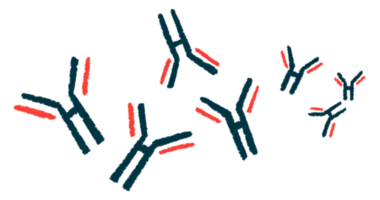Axial awarded second MJFF grant for gut-targeting therapy
AX-5006 is designed to keep gut bacteria from forming alpha-synuclein amyloids

Axial Therapeutics will use a new research grant from the Michael J. Fox Foundation for Parkinson’s Research (MJFF) to advance its experimental therapy for Parkinson’s disease, AX-5006, from ongoing preclinical studies into a first clinical trial in humans.
The company is conducting a series of preclinical studies to assess the effectiveness of AX-5006 before a Phase 1 clinical trial can be launched in 2024.
“We are proud to have continued funding support from The Michael J. Fox Foundation, the world’s largest nonprofit funder of [Parkinson’s disease] research, to support the Axial team’s progress in the development of AX-5006 for the treatment of [Parkinson’s disease],” Stewart Campbell, CEO of Axial, said in a press release.
A feature of Parkinson’s disease is the death and dysfunction of dopamine-producing nerve cells in the brain. At a molecular level, that involves toxic clumps of alpha-synuclein protein in brain cells, which are believed to significantly contribute to disease progression.
An emerging body of research has suggested the gut microbiome — the billions of bacteria that make their home in the human digestive tract — may play a role in the disease’s development. In fact, constipation and other gastrointestinal problems are common early nonmotor symptoms, and can occur years before the onset of the disease.
Why this happens is unclear, but it’s thought that toxic clumps of protein may form in the nerve cells that line the gut and spread into the brain via the gut-brain axis, a two-way avenue between the gut and the brain.
The company used a previous MJFF grant to develop a cell model that mimics the gut’s nervous system and allows gut-targeting therapy candidates to be screened and tested. The focus was on gut bacteria, which appear to play a role in the clumping of alpha-synuclein protein before these toxic aggregates travel to the brain.
How does AX-5006 work?
A small molecule, AX-5006 is designed to prevent gut bacteria from forming such clumps, or amyloids. This is expected to ease symptoms and slow the disease’s progression. Because AX-5006 works directly in the gut, it’s expected to have few side effects.
“Based on its mechanism of action, AX-5006 has the short-term potential to alleviate constipation, a major GI symptom in most cases of [Parkinson’s disease], and the long-term potential to favorably alter the course of disease progression. If successful, AX-5006 would establish a new class of meaningful treatment options for the [Parkinson’s disease] population,” Campbell said.
The two MJFF grants came from the foundation’s Therapeutic Pipeline Program, which helps speed up therapy candidates that may ease, slow, or prevent symptoms that aren’t well managed by available treatments.
“The Michael J. Fox Foundation aims to identify and develop programs with the potential to make an impact for those living with Parkinson’s disease,” said Luis Oliveira, PhD, senior associate director of research programs at MJFF. “We are pleased to grant Axial a second funding award to support their research towards this goal.”







